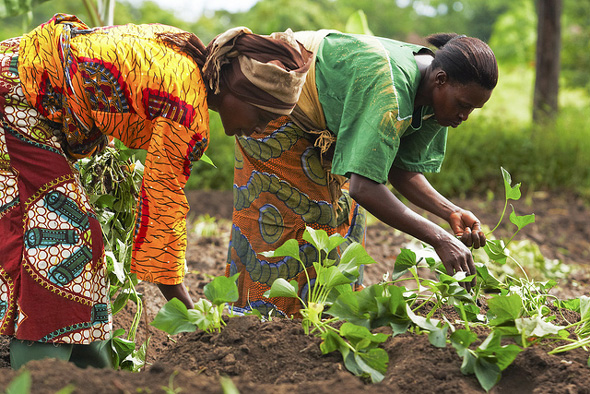The Institute for Poverty, Land, and Agrarian Studies (PLAAS) is hosting an online workshop for its latest project titled “Privatisation of customary land and implications for women’s land tenure security and livelihoods in Southern Africa” from 7 to 9 July 2020.
This new project, spearheaded by PLAAS and funded by the Austrian Development Cooperation, will be guided by voices from various civil society partners across Southern Africa including the Zambia Land Alliance (Zambia), Livaningo (Mozambique), Platform for Youth and Community Development (Zimbabwe), and the Nkuzi Development Association (South Africa).
Why this project?
The Southern African region is experiencing rapid and ‘silent’ processes of privatisation of customary land in the rural spaces. Consequently, the character of land tenure regimes is evolving and there are observable changes and continuities with great impact on how women and men relate to land. This is partly because of adaptations from below, but also accelerated from above by a resurgence of ‘high modernist’ land policies. This shift has created a new land tenure regime in Southern Africa, but it remains different from ‘Western-legal’ forms of private property. As a result, they present a challenge to academic and policy responses. Within this agrarian transition, there is limited empirical evidence to understand the driving factors, outcomes and nature of obtaining tenure as it relates to the protection of women’s interests in land, land uses and livelihoods. Therefore, this intervention is to ensure that women’s land rights are promoted through rigorous research that will inform dynamic policy reforms.
This new project builds on our Land and Water Rights in Southern Africa: Entrenching Global and Regional Policy Frameworks (2016-2020) project. We found that while land based investments by foreign multinational corporates have exacerbated land tenure insecurity among the rural poor—especially women—they are not the only important process. We observed that a combination of less visible local processes are at play in reconfiguring land rights, land uses and livelihoods, and one cannot understand the problem adequately without a more holistic approach.
The way forward
We will carry out the intervention in Zimbabwe, Mozambique, South Africa and Zambia where women’s land rights remain insecure and poverty rates are high. The envisaged outcome is that rural women, policy makers and civil society organizations across the four countries are supported with the capacity, evidence and platforms needed to promote policy formulation and implementation based on local practices and livelihoods realities as opposed to normative perceptions of what the tenure system is. In this regard, there are three expected outputs: (i) research and communication tools that are not gender blind, (ii) a rigorous evidence base, and (iii) policy positions that integrate different needs and voices of rural women. For high impact, the project intends to target a diverse range of stakeholders. These include influential policy makers in the Southern African Development Community (SADC), the African Union (AU) and the African Land Policy Centre (ALPC).
This project is a joint action research project that will be implement through partnerships between PLAAS researchers, civil society organisations (CSOs) and local communities across the four countries to document the processes of change, outcomes, experiences and responses. Since this is an action research project, the relevant stakeholders will participate in multiple ways throughout the project.
This project is led by Dr Phillan Zamchiya (PLAAS Senior Researcher), and is funded by the Austrian Development Cooperation.


